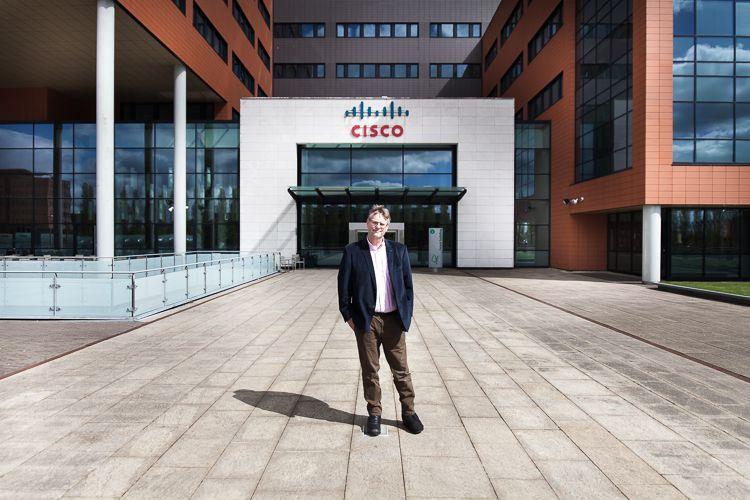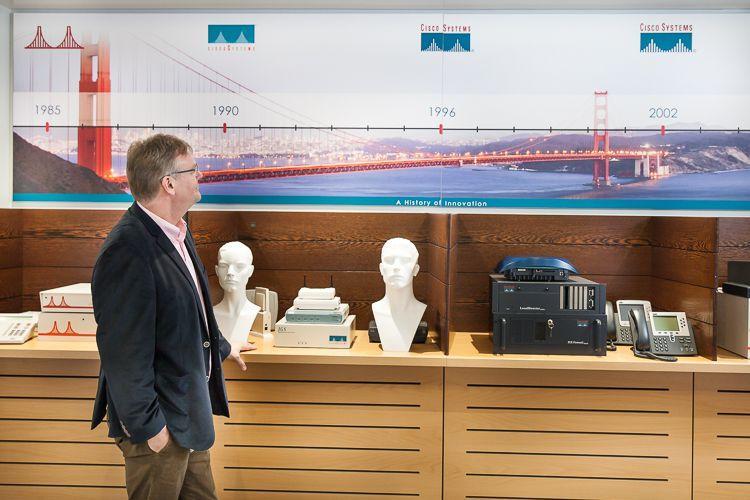
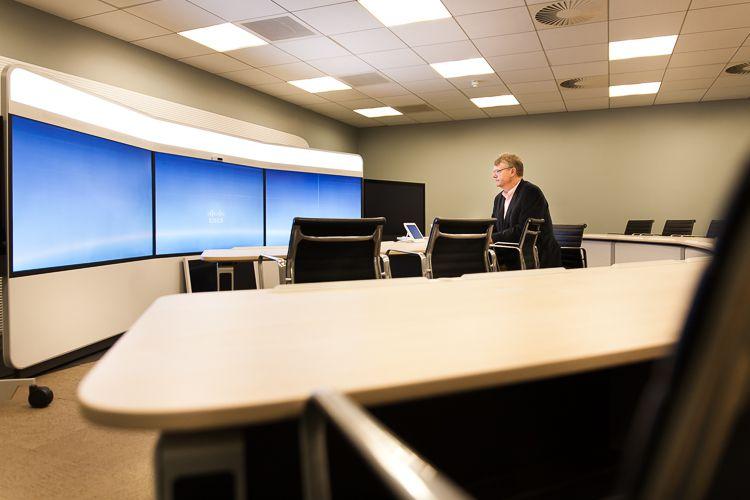
Master Electrical and Electronics Engineering / technical computer sciences at HTS Haarlem
Master in Medical Informatics At Leiden University
Master of Business Administration (MBA) (Financial Systems)
Master of Business Informatics (MBI) (Enterprise Resource Platforms) at Rotterdam School of Management
Several Certificates like CISSP, GISCP

As the cyber security lead for the Country Digitization Acceleration programme my job is essentially a business development position. Cisco has a large sales organisation but my position does not primarily focuses on sales. I’m more of a linking pin in the whole organisation. My goal is to find or create new business activities for Cisco. Cisco is widely known for its hardware solutions like routers, modems and such. But there are organisations that are not familiar with all of our products and solutions. My task is to introduce those organisations to Cisco by being a conversation partner on the topic of security for them.
We provide solutions to your problems. It’s my job to get all the relevant, what I like to call ‘Lego bricks’, on the table so we can build with that. The Lego bricks being experience from earlier projects. We work with those bricks, partners and consultants to come up with the best possible solution. It has happened that a solution didn’t include many Cisco products. Because I’m in business development rather than sales that’s not necessarily a bad thing. That specific solution might be the best fit for the customer and in the future they will likely knock on our door again because we helped them out before. Perhaps then we can offer a solution that does include more Cisco products.
It’s mostly new projects in which information security and digital safety are an important aspect. New technology applications or implementation of new security measures for example. In the product lifecycle I’m more involved in the brainstorming phase – at Cisco we call this ideation – rather than the actual implementation or operation phase. When a project is taking off my involvement usually ends. Of course I stay informed on whether a solution works or not and why. This feedback helps me to come up with better solutions in future projects.
One of the things I’ve noticed in these projects is that my diverse background is really valuable. I’ve been in both technical and commercial positions across a somewhat odd mixture of disciplines. This helps me to separate the real problems from secondary issues.

My career actually took a lot of unanticipated turns before ending up in the position I am now. I started in IT because I wanted to understand how computers work. This was way back when computer were not very common. Computer Science did not exist as a separate study program. I studied electric engineering because that was the programme that was closest to computers. I learned fixing and using computers as they were not very user friendly at the time. After I graduated from my master I started working at Leiden University and started another masters in Medical Informatics. I had a curiosity for medical images like flat lines, pulses, MRI images and thing alike. This combination between computer images and medical images happened by coincidence. I finished my masters while working on the Human Genome Project at the Massachusetts Institute of Technology (MIT). The project set out to map the human DNA. My role in the project was digitising the images used to make the map. Back then this was very difficult to do. Tools like scanners or digital photography did not exist at the time so everything was custom build.
When I came back to The Netherlands I was headhunted by a consultancy firm. I did a lot of network and security projects and made a career in the consultancy business. I moved on to another consultancy firm where I got to the position of leader for the Benelux Infrastructure Systems Security team. Eventually I decided it was time to get out of my comfort zone and learn something new, really have a new challenge. This resulted in me starting at Cisco as a system engineer. Now 13 years and several jobs later I am in a position where all my previous experiences kind of comes together. Combining consultancy skills with technical IT and security knowledge.
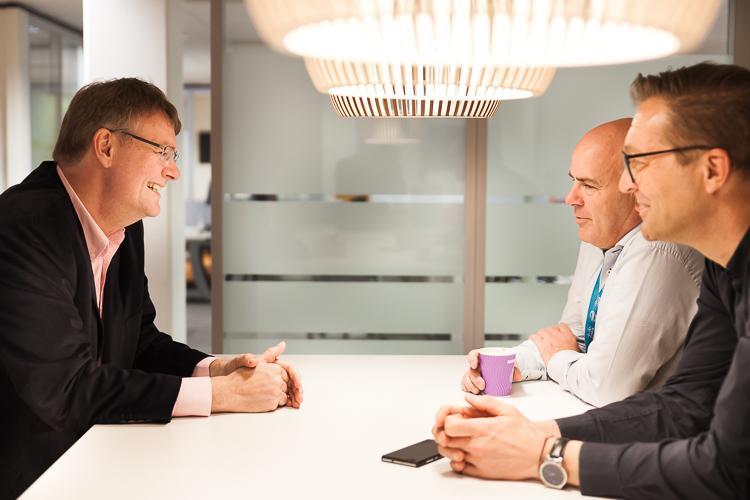
In hindsight the biggest technical milestone was my time at the Human Genome Project working on digital imaging and processing, because it was such ground breaking work. Also I met my wife because I went to the U.S. to work on that project so I’m really happy I did that. But I also consider my current position a milestone. It’s a really interesting and big challenge and I’m learning a lot of new things. It’s always exciting to start with something new, how it will play out. Especially if you’re asked to really create something within the organisation that didn’t exist before.
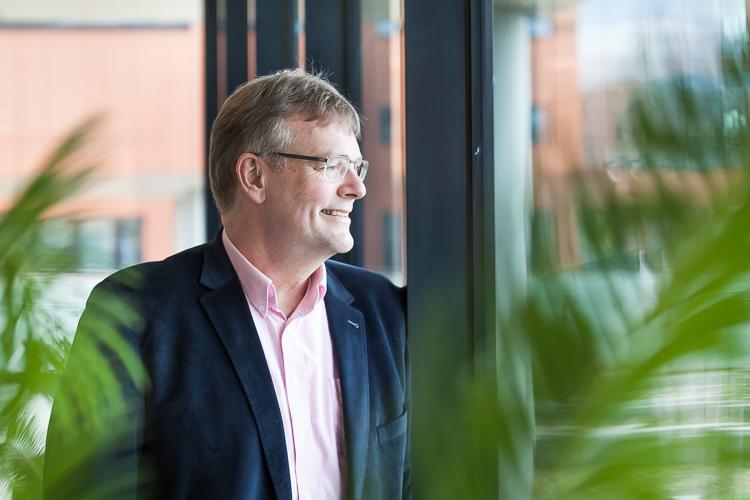
If I would know the answer to that I wouldn’t be here. I do see some trends though. The world is becoming an increasingly smaller place thanks to the web, social media and things alike. This makes society less individual. Back in the days you could really be the expert on a certain topic. Nowadays work is increasingly becoming a team effort. When I started my career I was solving problems on a small specific topic on my own. Now I’m working alongside other experts on projects with a much broader scope making sure everything moves in the right direction. We have virtual teams with members from all over the world that I have never met in person but we work on projects together. You’re becoming part of an ecosystem of partners, colleagues and even competitors. In the future we will work more in these ecosystems and large teams.
To keep up I’m still learning, still studying. New topics emerge, like Blockchain for example. At first glance it looks like a completely new technique. But when you really look into it you see it’s a clever combination of existing techniques to create something new. That’s when you come to understand it and see that it’s very clever and really a new application and that it has the potential to become a disruptive technology. That’s when you start reading journals, I have a subscription to ‘Harvard Business Review’ for example because they often write on emerging technologies. So you go through professional literature, study on the subject, look for contacts. If it’s something that’s completely new and difficult to grasp you can take a course or self study on it. Nowadays that’s a bit more difficult than it used to be back in the days. You have to look for it yourself a lot more.
When I talk to clients I always ask them; “Do you have any homework for me?” It’s important that you have a good understanding of what your client does. You don’t have to be an expert but you do need to understand the business. Sometimes the homework they give me is an annual report to go through another time it’s a scientific article related to their business.
Finally I have some certifications that require I keep my knowledge up to date. To keep my CISSP (Certified Information Systems Security Professional) and GICSP (Global Industrial Cyber Security Professional) certification it’s required that I collect CPE (Continuous Professional Education) points. I have to show what I have done to keep up to date in order to keep my certification. For example what literature I have read, what courses I took and so on.

In the 80’s and 90’s it was relatively easy to find a job because there weren’t many experts and computers were relatively new. Computers where a new disruptive technology and I was young and enthusiast. Nowadays it’s kind of the same for cybersecurity experts. In that sense there will probably always be some jobs in IT where experts are needed. Data for example is a hot topic right now where experts will, and already are, in demand.
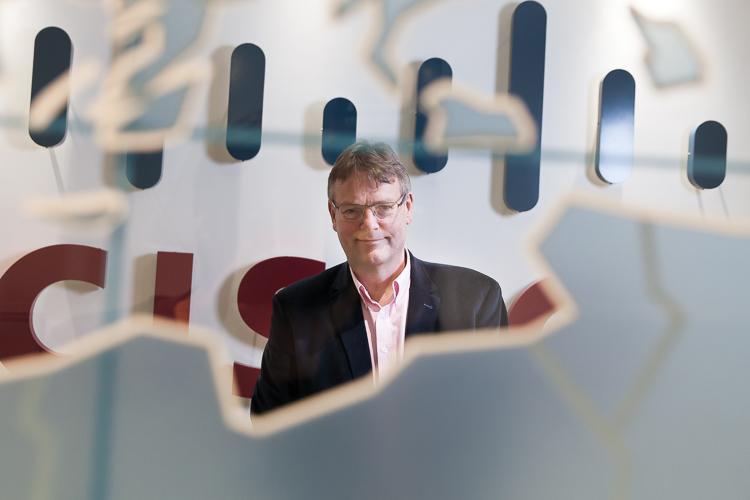
Be authentic! Don’t try to be someone you’re really not. If you don’t understand something, just say it and ask and learn about it. And finally do what you like and don’t be afraid to make choices that lead to a change of course. I’m really glad I made those choices. For example, at one point I was about to become Vice President but instead I started a new job as a system engineer. Something of an unusual and weird choice to many but it felt good and worked great for me.
